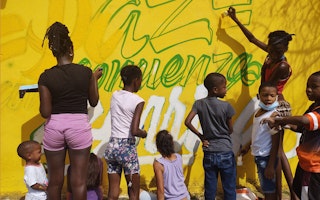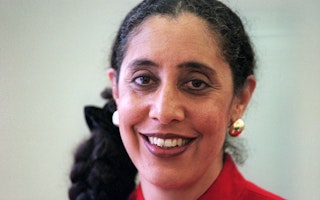Around the world, states routinely deploy law enforcement, courts, and prisons against marginalized communities for reasons that have little to do with safety, but rather to protect the boundaries of wealth and privilege. The arbitrary enforcement of punitive criminal laws, many with roots in the age of empire, is compounded by multiple, intersectional forms of oppression including combinations of gender, disability, sexual orientation, racial, ethnic, and class discrimination. This results in fundamental rights violations, negatively inflecting justice outcomes for those on the margins.
Often missed in the growing discourse on the criminalization of poverty and status are the economic and political incentives that drive these discriminatory legal frameworks. Moreover, the profound socioeconomic impact of laws that punish and disenfranchise people for who they are rather than for what they have done is seldom acknowledged.
This event will explore the complex interplay between social, economic, and political exclusion and criminalization. We will bring together experts from intersecting fields of development and criminal, economic, and spatial justice to explore opportunities for interdisciplinary collaboration on this important issue.
Simultaneous interpretation will be provided in Arabic, English, French, and Portuguese.
Speakers
-
Sana Ben Achour
Speaker
Sana Ben Achour is professor of public law in the faculty of Legal, Political, and Social Sciences at the University of Carthage in Tunisia and is founder of the feminist organization Beity (My Home).
-
Clifton Cortez
Speaker
Clifton Cortez is World Bank global advisor on sexual orientation and gender identity.
-
-
Maria Teresa Manuela
Speaker
Maria Teresa Manuela is commissioner and special rapporteur on prisons, conditions of detention and policing in Africa for the African Commission on Human and Peoples’ Rights.
-
Read more
explainer
Why It’s Time to Repeal Petty Offense Laws

Throughout the world, laws drawn from colonial era precedents are contributing to police brutality, prison overcrowding, and the oppression of marginalized and minority populations.
Homicide Reduction
Q&A: How One Colombian City Is Tackling Violent Crime

Palmira, Colombia, is one of the most violent cities in the world. But a prevention program focusing on youth has reduced crime significantly—and earned it an international peace prize. The city’s mayor on what’s working.
In Remembrance
Lani Guinier’s Overlooked Education Legacy

The late Lani Guinier thought deeply about the intersection between education and criminal justice. Her leadership at Open Society helped pave the way to colleges across the country offering higher education to the incarcerated.